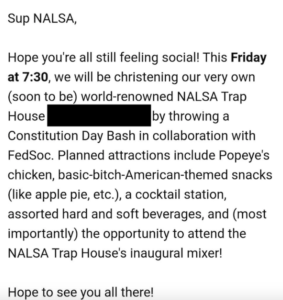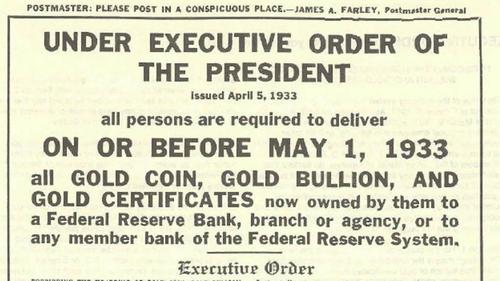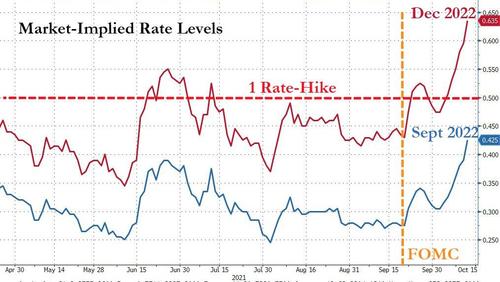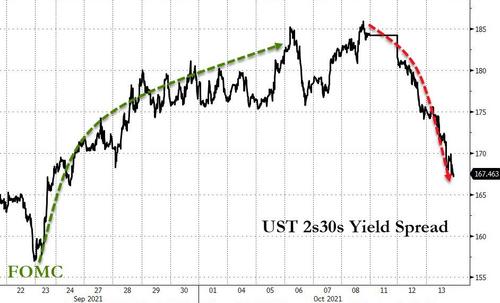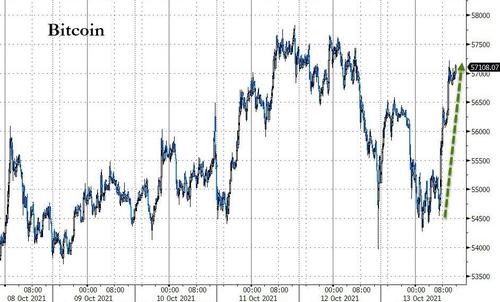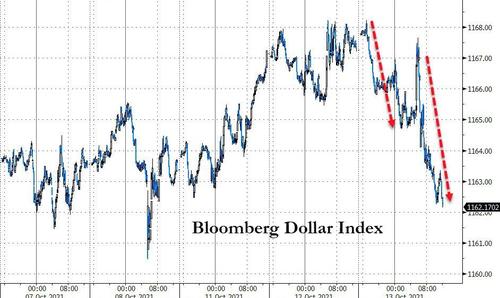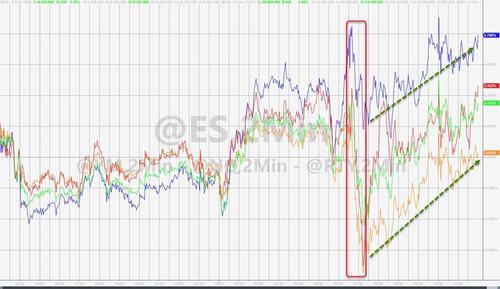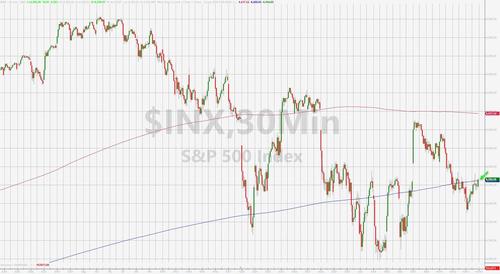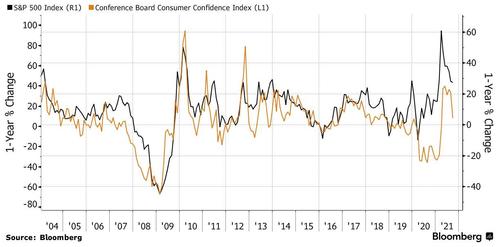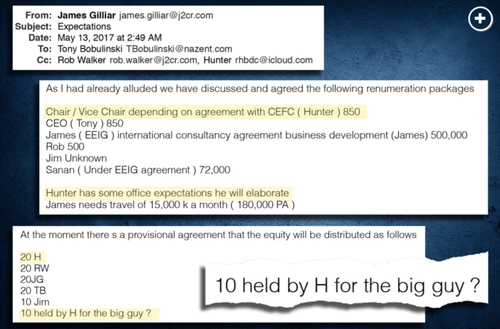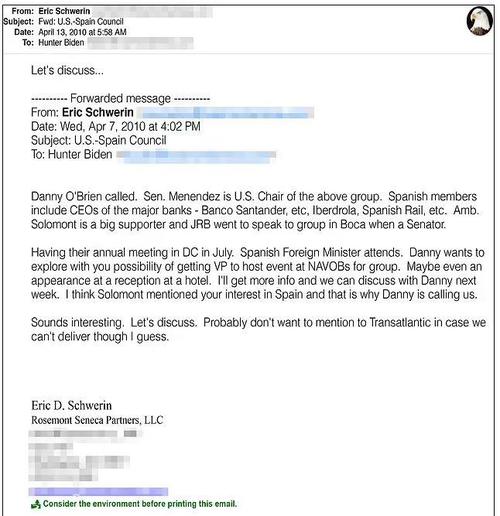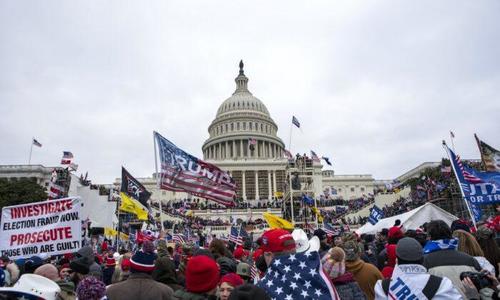As the U.S. Supreme Court considers whether to enforce the Second Amendment right to “bear arms” in New York State Rifle & Pistol Association v. Bruen, an amicus brief from Amnesty International argues that doing so would violate international law. In this post, I’ll examine the arguments in the AI brief.
Back in the days when I was a monthly donor to AI, the group was known for its work in supporting political prisoners around the world. But for a long time AI has involved itself in many other issues, including global gun prohibition. Today, the leading international anti-gun organization is Control Arms, which was cofounded in 2003 by Amnesty International, Oxfam, and the International Action Network on Small Arms (IANSA).
For these groups, a complete embargo on all arms sales to Israel is a longstanding priority. See, e.g., Control Arms, Arms Without Borders: Why a Global Trade Needs Global Controls, Oct. 2006. To prevent Israel from manufacturing its own arms, the groups also favor a ban on commerce in arms-making materials, such as titanium.
It’s not just Israelis whom AI wants to disarm. The group enthusiastically supported hard left Brazilian president Lula da Silva’s 2005 ballot referendum to ban all gun sales. (The ban was defeated 64%-36%).
Even some ardent opponents of civilian gun ownership in general acknowledge that defensive arms are legitimate for people who are the targets of an active genocide campaign. AI disagrees.
The group did a good job of documenting how easy it was for the Islamist government in Sudan to use disarmement to perpetrate genocide against the African Darfuri tribes. Much of the killing was carried out by Arab gangs, the Janjaweed, who were armed by the Sudanese government. As AI reported, the majority of the Janjaweed had five or six guns per person. AI quoted a Darfuri villager: “none of us had arms and we were not able to resist the attack.” In the words of another villager, “I tried to take my spear to protect my family, but they threatened me with a gun, so I stopped. The six Arabs then raped my daughter in front of me, my wife and my other children.” Amnesty International, Sudan: Arming the Perpetrators of Grave Abuses in Darfur, Nov. 16, 2004.
The Pittsburgh Tribune-Review asked Amnesty International’s Trish Katyoka, director of Africa Advocacy for the group, whether the Darfur victims should be armed. Dimitri Vassilaros, “Gun Control’s Best Friend,” Pittsburgh Tribune-Review, Apr. 1, 2005. She answered in the negative:
“We at Amnesty International are not going to condone escalation of the flow of arms to the region.” Indeed, “You are empowering (the victims) to create an element of retaliation.” “Whenever you create a sword-fight by letting the poor people fight back and give them arms, it creates an added element of complexity. You do not know what the results will be.” In sum, “Fighting fire with fire is not the solution to genocide. It is a dangerous proposition to arm the minorities to fight back.”
AI’s position conflates self-defense against murder with “retaliation,” which is revenge after the fact. It’s true that armed victims may add “complexity” to a situation—especially for attackers who used to straightforwardly murdering helpless victims. When the victims are unarmed, you do “know what the results will be”: the victims will be exterminated. Adding complexity to avoid certain mass murders is a life-saving choice.
Charming Betsy
Part I of the AI amicus brief argues that judicial interpretation of the U.S. Constitution, including the Second Amendment, must subordinate interpretation of the Constitution to what AI claims to be international law. The argument is an extravagant extrapolation of a longstanding rule of statutory interpretation, namely the “Charming Betsy Canon.”
In the 1804 U.S. Supreme Court case Murray v. Schooner Charming Betsy, 6 U.S. (2 Cranch) 64 (1804), Chief Justice Marshall wrote: “an act of Congress ought never to be construed to violate the law of nations, if any other possible construction remains.” The Charming Betsy ship was originally owned by an American but was later sold in St. Thomas to a Dane who sent it on a commercial voyage to the French island of Guadeloupe. The issue before the Court was whether the ship was forfeitable under a congressional statute that forbade American trade with France, which at the time had been engaged in the undeclared naval Quasi-War against the United States. The Marshall Court construed the statute narrowly, so as not to run counter to international law, which allows wartime trade by neutrals (such as Denmark).
In statutory construction, the Charming Betsy canon has been applied by American courts ever since. It has never been applied as a doctrine of constitutional interpretation. If it were, the First Amendment would be a certain casualty. Few if any nations and international treaties interpret “the freedom of speech, or of the press,” or “the free exercise” of religion as strongly as do American courts. Indeed, for most of American history judicial review of the constitutionality of legislation had very few counterparts in the world. Harvard Law Professor Vicki C. Jackson’s 2009 book Constitutional Engagement in a Transnational Era (2009) argues for use of international law in interpreting some constitutional provisions, but not the Second Amendment, which has the “specificity or distinctiveness . . . that makes transnational sources irrelevant.”
AI argues that “The Constitution was . . . drafted with international law as a set of background norms, and this Court should construe the Constitution accordingly.” However, none of the alleged “background norms” that AI cites existed in 1791 when the Second Amendment was ratified, or in 1868 when the Fourteenth Amendment made it enforceable against the states.
Indeed, the Constitution, including the Bill of Rights, was drafted and ratified an intent to counter contemporary norms. For example, while many nations allowed (and still allow) censorship, the Constitution generally forbids it. While unlimited arms control was (and still is) the norm in much of the world, America’s Framers wanted to ensure that government didn’t have a monopoly on the implements of violence because they knew, based on experience, that government could not be trusted with such a monopoly. Whatever the harmful consequences of preventing a government monopoly of force, the Founding Fathers (in 1789) and Founding Sons (in 1868) believed that the alternative was far worse.
Even if the U.S. Senate had ratified an international gun control treaty, “No agreement with a foreign nation can confer power on the Congress, or on any other branch of Government, which is free from the restraints in the Constitution” Reid v. Covert, 354 U.S. 1, 16 (1957) (Black, J.) (plurality op.).
Along the way, AI accurately cites the 1897 case Robertson v. Baldwin, 165 U.S. 275, 283-86 (1897) for the proposition that the Court sometimes looks at the laws of other nations. In Robertson, a merchant seaman who had jumped ship argued that being forced to complete his labor contract amounted to involuntary servitude in violation of the Thirteenth Amendment. Citing the historic sea laws of Rhodes, Germany, the United Kingdom, and other nations, the Court observed that the laws forbade sailors to desert while in port. Notably absent from AI’s brief is what Robertson said about the Second Amendment: all of the Bill of Rights—and by extension the Thirteenth Amendment–contained implicit exceptions that were well-known at the time, and incorporated into those Amendments. For example, the First Amendment freedom of speech and of the press does not prohibit laws against libel; the Fifth Amendment prohibition on double jeopardy does not forbid retrial after a hung jury; that Amendment’s prohibition on compelled self-incrimination does not apply if the relevant statute of limitations has expired. And “the right of the people to keep and bear arms (Art. II) is not infringed by laws prohibiting the carrying of concealed weapons.” Id. at 282-83.
This indicates that the right to carry unconcealed weapons is part of the Second Amendment right. Or pursuant to the state cases favorably cited in Heller‘s more detailed examination of the Second Amendment, a legislature has the discretion to require that arms be carried openly, or that they be carried concealed; the legislature can choose the mode of carry, but cannot prohibit carry. (See Part V of my amicus brief in this case for detail.)
An empirical mix-up
Part II of the AI brief is the core argument for why international law is said to compel the Court to rule that the plaintiffs have no right to be issued a license to carry a firearm for lawful self-defense. The brief offers a hodgepodge of empirical studies, hardly any of which are relevant to the case at bar—such as a study arguing that Connecticut’s laws for purchasing handguns are better than Missouri’s.
Many of the studies have nothing to do with carrying guns, but instead involve claims that more firearms possession in a society necessarily lead to more criminal violence. While all these studies are debatable, even if they were conclusively accepted as true, they make an argument against the Second Amendment itself.
The lone specific citation in the AI brief about bearing arms is of a “fact sheet” by Professor Daniel Webster, of the Bloomberg School of Public Health at Johns Hopkins University, Concealed Carry of Firearms: Fact vs. Fiction. The link in the AI brief is broken, but you can find the fact sheet here. It argues that guns are ineffective for self-defense and rarely used for self-defense. The specific issue is right to carry laws is addressed on a single page, which cites three studies saying that such laws have harmful effects.
The claim is indirectly called into doubt by another article cited in the AI brief: Julian Santaella-Tenorio et al., What Do We Know About the Association Between Firearm Legislation and Firearm-Related Injuries?, 38 Epidemiologic News [sic, Epidemiologic Reviews] 140 (2016). According to AI, the study shows that “gun violence deaths in the United States are preventable through the adoption of reasonable gun safety laws,” which “include provisions such as New York’s ‘proper cause’ requirement for obtaining and carrying a firearm.”
In fact, Figure 2 of the study presents a summary of 25 studies of “Shall Issue” laws—that is, laws specifying that a person who passes a background check and safety training may not be denied a carry permit simply because a government official thinks the person does not “need” to carry a defensive arm. Almost all U.S. States already have such a law. Of the 25 cited studies, 11 reported that Shall Issue laws are associated with increased homicide, while 14 reported an association with decreased homicide.
Critics of the above article wrote that the article had omitted seven peer-reviewed studies in the relevant time period, all of which showed Shall Issue leading to reduced violent crime. Further, the authors had “consistently picked results that were the most favorable single result for gun control in the papers they surveyed” and had “picked results that the authors of those papers rejected.” John Lott, Carlisle E. Moody, and John E. Whitley, Re: “What Do We Know A bout the Association Between Firearm Legislation and Firearm-Related Injuries?” Epidemiologic Reviews, June 2016 (letter). Prof. Santaella-Tenorio and her colleagues subsequently published a 30-item correction to the original article. 39 Epidemiologic Reviews 171 (2017).
There are other amicus briefs that get into more depth about the pro/con empirical issues of bearing arms. I will write about them in a future post. Dissenting in District of Columbia v. Heller, Justice Breyer summarized the pro/con evidence about the benefits and dangers of handgun ownership in the home. He concluded that since there was lots of evidence on both sides, the Court should defer to the judgement of the D.C. Council. Justice Scalia’s majority opinion responded:
The very enumeration of the right takes out of the hands of government—even the Third Branch of Government—the power to decide on a case-by-case basis whether the right is really worth insisting upon. A constitutional guarantee subject to future judges’ assessments of its usefulness is no constitutional guarantee at all. Constitutional rights are enshrined with the scope they were understood to have when the people adopted them, whether or not future legislatures or (yes) even future judges think that scope too broad. . . . [T]he enshrinement of constitutional rights necessarily takes certain policy choices off the table.
The same point applies to the right to bear arms. The pro/con empirical interest balancing was performed by the American people when they ratified the Second Amendment. A licensing law, like that applied to the plaintiffs in the instant case, that makes it impossible for the vast majority of the population to exercise an enumerated right at all is a prohibition, not a regulation. It is straightforwardly a violation of the constitutional text.
International law
As for the actual “international law” the AI brief’s introduction promised, it turns out to be rather thin. The United States has ratified the International Covenant on Civil and Political Rights (ICCPR), and has also ratified the International Convention on the Elimination of All Forms of Racial Discrimination (CERD). The texts of these documents protect the right to life, the right to personal security, the special rights of children to protection, and the rights of all people against racial or sexual discrimination.
AI cites documents from United Nations committees asserting that the above documents create affirmative duties on governments to protect people from private violations of their rights. For example, according to the UN’s Human Rights Committee, to comply with the ICCPR, a government must not merely refrain from killing people (with certain exceptions, such as war); the government must affirmatively protect people from being murdered by private individuals.
However, the only documents that are part of American law are the treaties that were ratified by the Senate. Senate ratification does not compel the U.S. Supreme Court—or anyone else—to comply with the subsequent declarations by the U.N. bureaucracy.
Indeed, the U.S. Supreme Court has already ruled directly to the contrary. In Gonzales v. Castle Rock, 544 U.S. 478 (2005), the Court reaffirmed the longstanding doctrine that governments have no affirmative duty to protect citizens from private violence. Arguments that the Court was compelled by international law to adopt a contrary rule were presented in that case, but were not successful.
To whatever extent that the ICCPR and CERD texts are relevant to New York State Rifle and Pistol Association v. Bruen, they militate in favor of the petitioners. When a person is attacked by violent criminals in a public place, the government has already breached its (arguable) duty to protect people from private violence. In such a situation, some governments make the victims even worse off than they would be if there were no government at all—for the governments forbid the victims from carrying the tools necessary for the victims to defend themselves.
Consider the impunity with which gangs attack people in some European cities for wearing a yarmulke or a short skirt. Or the impunity of repeat violent predators on the streets and subways of New York City. By forbidding peaceable defensive carry, governments that prohibit lawfully bearing arms have affirmatively guaranteed the safety of gangsters and the violently insane to have their way with their victims.
The U.N. Human Right Committee
The AI amicus brief heavily relies on statements by the U.N.’s infamous Human Rights Council. The brief mistakenly refers to that body as the “Human Rights Committee.” To be precise, the predecessor of the U.S. Human Rights Council was the U.S. Committee on Human Rights, which the U.N. abolished in 2006 because its anti-right and anti-Semitic agenda had become intolerable. However, the new Council continues the misconduct of the old Committee.
The “Human Rights Council” proclaims: “With membership on the Council comes a responsibility to uphold high human rights standards.” One can assess the Council’s credibility by considering its actual current members, such as China, Eritrea, Pakistan, the Russian Federation, Sudan, and Venezuela—all of which are criminal thugocracies that rule by attempting to disarm their victim populations.
AI cites a 2006 report to the Committee on Human Rights by University of Minnesota Law Professor Barbara Frey. According to the Frey Report, a state’s failure to restrict self-defense is itself a human rights violation. The report states that a government has violated the human right to life to the extent that a state allows the defensive use of a firearm “unless the action was necessary to save a life or lives.” Thus, firearms “may be used defensively only in the most extreme circumstances, expressly, where the right to life is already threatened or unjustifiably impinged.” In other words, a government that allows the use of deadly force to defend against rape, arson, carjacking, or armed robbery has violated the criminal’s right to life. By the Frey theory, every U.S. state government and the federal government are and always have been violators of violent criminals’ right to life.
The Frey report states that it is a human rights violation for persons to be allowed to possess a firearm without a permit, and the permit should enumerate “specific purposes” for which the gun could be used. Today, no U.S. jurisdiction is compliant with this standard. Most states do not require a permit to possess a handgun, and hardly any require a permit for a long gun. Anyone who may lawfully own a gun may keep it at home for self-defense, may take it to a target range, hunt with it (for which a hunting license is usually required), or use the gun for any other lawful purpose. So even the severe gun control laws of New York State are human rights violations, according to the Frey report and its adoption by U.N. committee. In New York, you can buy a shotgun upon passing a background check, and you can then keep the gun for self-defense, skeet shooting, or other purposes, with no specific permission.
I have argued elsewhere that the Frey report omits many sources of international law that recognize the inherent human right of self-defense, and that the report misdescribes some sources of international law by claiming that they treat self-defense as a mere excuse and not justification. The Human Right of Self-Defense, 22 BYU Journal of Public Law 43 (2008).
The racial angle
The third and final part of the AI amicus brief essentially retreads the arguments in Part II, but this time with special reference to racial discrimination. As the brief’s statistics show, black people in the United States are disproportionately harmed by violent armed criminals and often receive insufficient police protection. Indeed, the problem has grown much worse in the past few years. The existence of the serious problem does not prove that the U.S. Supreme Court would violate international law if the Court respected the right of a law-abiding black woman or man to carry a handgun for protection. Indeed, an amicus brief by the Black Attorneys of Legal Aid, the Bronx Defenders, and the Brooklyn Defenders points out the New York’s arbitrary handgun licensing law is now and always has been enforced with discriminatory severity against people of color.
That brief recognizes that firearms have controversial public safety implications. But:
. . . New York’s licensing requirements—which cause criminal penalties for unlicensed
possession—themselves have controversial public safety implications. It is not safe to be approached by police on suspicion that you possess a gun without a license. It is not safe to have a search warrant executed on your home. It is not safe to be caged pretrial at Rikers Island. It is not safe to lose your job. It is not safe to lose your children. It is not safe to be sentenced to prison. And it is not safe to forever be branded as a “criminal,” or worse, as a “violent felon. In sum, New York’s licensing requirements are not safe.
The Court must not “stand by idly” while New York denies its people the right to keep and bear arms, “particularly when their very lives may depend on it.” Peruta v. California, 137 S. Ct. 1995, 2000 (2017) (Thomas, J., dissenting from the denial of certiorari). It must create a rule that will in fact protect the Second Amendment rights of “all” the people. See McDonald [v. City of Chicago], 561 U.S. at 773. Achieving that goal requires that the Court answer the question presented by holding for the Petitioners and reasoning that New York’s licensing regime violates the right to keep and bear arms
(some citations omitted).
Thus, to whatever extent that international treaties about the right to life and nondiscrimination influence U.S. constitutional interpretation, these treaties militate in favor of the Court ruling against the New York law that fosters racial discrimination and forbids the lawful defense of one’s life outside the home.
At the least, the differing implications that may be drawn from the international treaties, and the differing results of the empirical studies cast doubt on the claims of Amnesty International and its allies in the United Nations bureaucracy that international law plainly forbids the United States to allow the use of firearms against violent felony attackers.

from Latest – Reason.com https://ift.tt/3p520KJ
via IFTTT

